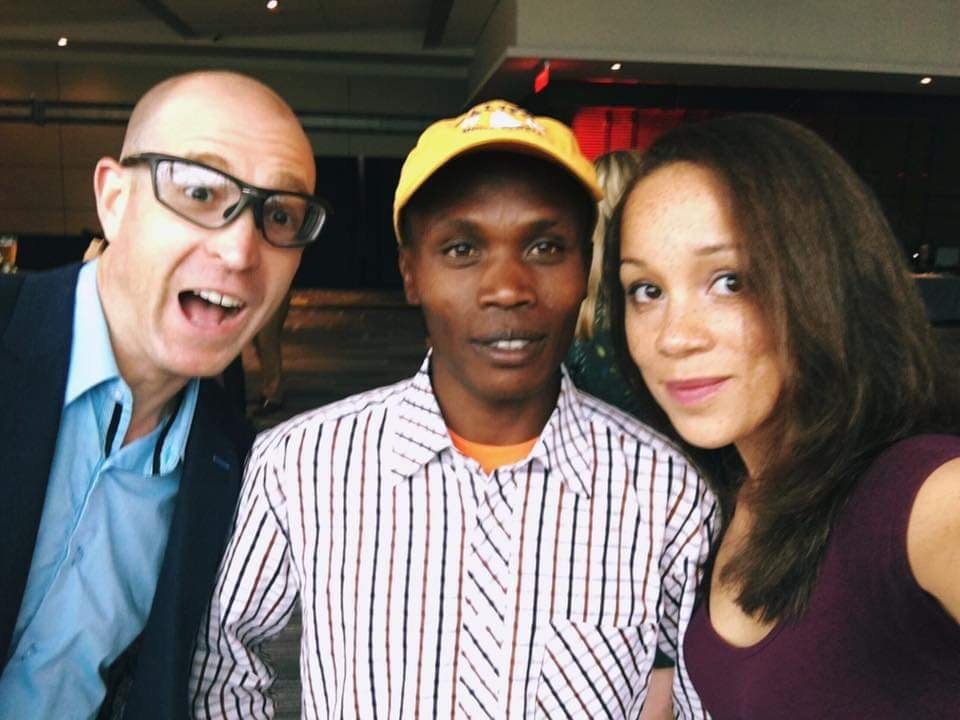My name is Justin Lagat, and I am a long-distance runner from Kenya.
The sport of running has been the best thing that ever happened to me. It has taught me a lot, has enabled me to travel to many different places in and out of my country, and has introduced me to so many friends and people, of different races and backgrounds, some of who have even turned out to become more like a close family to me.
I like the diversity of the people I meet. I remember the first time I traveled to Ottawa in 2016. I was looking for an adapter to buy for my phone’s charger. I had approached a random white guy—I am Black—to ask him if he knew of a store around Kent Street where I would get the item. He was one of the nicest strangers I have ever met and gave me a first and lasting impression of Canadian people. When he learned that I was Kenyan, he told me he knew about my country through our runners.
His image is now a little bit distorted in my mind, but I still remember when I wanted to cross the street right where he had pointed and he stopped me. “You might want to use the pedestrian crosswalk,” he had told me, as he pointed to me where to cross the street safely.
Anywhere in the world can feel like home if everyone cared for a stranger regardless of their race and background.

This is not the encounter that most of my fellow Kenyan runners report when they get back from their trips to run abroad. Some report incidences of racism from the way they are handled during their travels; from security officials to other travellers in their group.
In some rare instances, there have even been marathon events that mislead the front runners so that others behind them eventually won their races, like the questionable incident that happened at the Venice Marathon in 2017. Mistakes do happen, but racists may capitalize on their allowance to make such mistakes if allowed, to drive their ulterior motives.
The incident of George Floyd, killed in Minnesota by police due to racism, is an example of what happens all over the world. Of course, I have experienced smaller versions of racism myself. There was a time I tried to talk to a white guy at a supermarket to ask if he could help me locate some items and he just assumed me. On a different day, I was passing through a certain neighbourhood where someone had put up a garage sale poster. When he saw me, he quickly pulled down the sign until I had passed. But, interestingly, in the same neighbourhood, I came across some white women selling some items in their garage sale as well. They sliced the prices for me on the items that I had picked up. I pointed out to them that the price tag was higher, but they told me not to worry. “We know,” one said. “We just reduced the price right now!”
While traveling, I have twice been asked to step aside to explain where I was from. I can only guess this may have happened to me because of my skin colour.
There was a young white lady who found herself alone with me inside a lift at the Union Station in Toronto. She screamed in fright. Fortunately, for me, other people entered the lift and she finally felt secure. How did I feel? It kept me thinking, perhaps what fuels racism more than hatred is ignorance, what some people are being told about the other race when they’re young. They have no choice but to grow up with hatred.

There are so many people—both in running and outside of our sport—who hate racism. There’s also racists, and then there’s people who say or do things for selfish, political reasons. We’re seeing this now. I think the best way to fight racism is to stand for each other. Refuse a favour being offered to you for being from a certain race—this means “white privilege.” Stand up for your friends from another race whenever they are looked down upon. If you see Kenyan runners at your next marathon, applaud. But also treat the other black people you meet with equal respect.
It is my plea to all runners across the world that we all see each other as one family. We must stand for each other the way one would stand with a brother or a sister. This world can be a better place without racism. Let it begin with each of us, today.






 Current Issue
Current Issue Previous Issue
Previous Issue Prior Release
Prior Release
